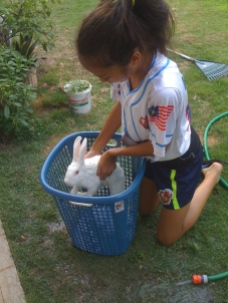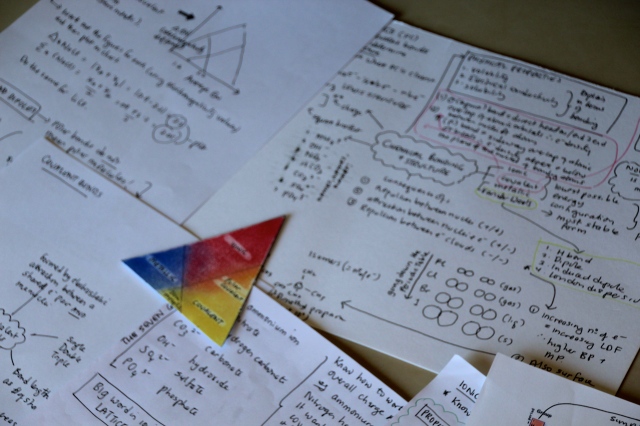A few years ago, a quiet country called Finland came to world attention suddenly: from relative obscurity, its education system was suddenly hailed as the best in the world. One was the documentary, Waiting for Superman, about the poor state of American education (despite the No Child Left Behind policy and large investment in education), and the second was the stellar performance of Finnish students in PISA, the Programme for International Student Assessment.
I was in Asia at that time, with three or four school aged children in a very competitive, academic school. I looked on with bemusement as folks here scrambled like lemmings to emulate Finland’s success. There’s even a Chinese word for it, kiasu, meaning ‘afraid to lose’.
Private schools and international schools of course capitalised on this kiasu-ness of parents. Words such as lifelong learner, problem-solver, resilient thinker, etc began popping up in marketing material, vocabulary and curricula already laden with homework, tuition, assignments, more tuition.
And here’s the thing: I think these schools AND parents who are suddenly longing for Finnish education are schizophrenic. They want to emulate Finland’s success, but the very nature of Finland’s success when it comes to education is its non-competitive nature:
- There are no mandated, standardised tests in Finland except for ONE exam at the end of a student’s senior year in high school;
- There are no rankings, no comparisons, no competitions amongst students, teachers or schools;
- If one method doesn’t work for a student, try something else rather than beating him/her to finish first amongst the strong finishers.
My view as a mother of five who have always been keenly involved in education (I was a school governor of my children’s school in Portsmouth) is that pushy parents and relaxed Finnish style education simply do not mix. You have more chance of mixing oil with water.
Finnish children climb trees. Finnish children use sharp blades to build their own playhouses. Finnish children don’t go for tuitions. Finnish children don’t spend all their hours indoors. And most of all, Finnish parents simply don’t compare …. since comparison is not in the national ethos.
Equality is the most important word in Finnish education – Olli Lukkainen, president of Finland’s teaching union.
And as we well know, it all starts from the home though of course, schools and national education systems do have some impact on how your child will turn up. But I would always maintain that parents are the main teachers. Your ideologies, your values, your ethos and your philosophies shape your child’s psyche as surely as the river shapes the landscape it flows through every day. If you are pushy, stressed out, competitive about your kid’s exam scores, you’re not going to have a relaxed, happy, curious kid with an inquiring mind. Your kid would be too afraid to fail (or worse still, not care a jot about failing) have the time and space to explore, expand, formulate, rationalise, grow….because all his/her available resource would be invested into the pointless task beating the exams and beating “competitors” rather than actual learning.
So, in the interest of education, let me share with you the mindset of the Finnish people that perhaps is the key factor to the success of the Finnish education system: kalsarikänni.
It basically means sitting around in the home, drinking beer in your underpants, watching some TV maybe. Yes, I kid you not. But at the heart of kalsarikänni is optimal peace of mind, comfort and equilibrium.
Here’s an enlightened article about it in The Guardian, written by the Finnish author Miska Rantanen:

Though I have just learned about the word for this particular way of being only a couple of days ago, it is something that my children’s father and I have always practised in parenting: I never go to school meetings with my children’s teachers (my communication with my children are honest and frequent enough for me to know if there is a need for my intervention) and my children’s father often (like four days a week) took my youngest to the pub after work when she was young. Even the damn dog went to the pub in Sri Hartamas, Kuala Lumpur. I wrote about my daughter’s beermat-flipping skills (as the result of spending 4 days a week waiting for her father to finish drinking with his mates in the pub) in my book. She actually did most of her homework and studying in the pub.

So why am I so chilled? Because my thesis is that a happy, well-balanced, and kind child with good social skills will always succeed as an adult So focus on the important bits. Take a leaf out of the book of the Finns. Relax. The more you try to grab hold of something, the more it seeps out of your fingers like sand.
Here’s something for you to think about:
Schools are not just places for transmitting technical know-how. They must also be places where children can learn to be happy, loving, and understanding, where teachers nourish their students with their own insights and happiness.
– Thich Nhat Hanh, in “The Heart of the Buddha’s Teaching”.
And from Great Parenting Simplified:

My book, Easy Parenting For All Ages: A Guide For Raising Happy Strong Kids, is available for free download on kindle unlimited. Click on this link.
To order a copy of Pantsdrunk: The Finnish Art of Drinking at Home. Alone. In Your Underwear by Miska Rantanen, (Square Peg, £9.99) for £8.59, go to guardianbookshop.com
























